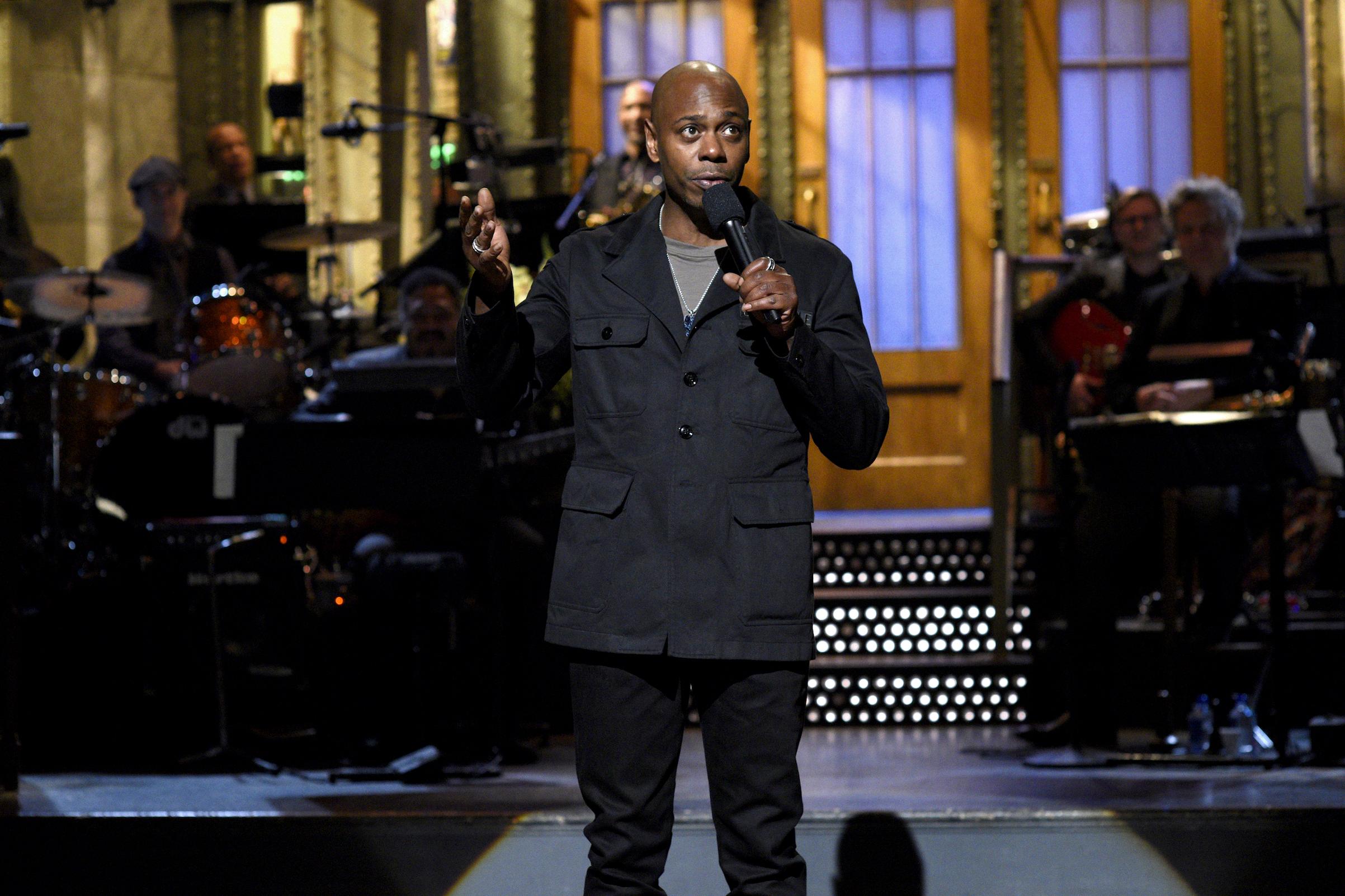Dave Chappelle’s decision to leave his popular television show, “Chappelle’s Show,” in 2006 was met with surprise and confusion from fans and the media alike. In an interview with Oprah Winfrey, Chappelle revealed that his departure was motivated by a combination of stress and a sense of conflict regarding the material he was producing. One particular aspect that troubled him was the perceived social irresponsibility of some of his sketches.
Chappelle’s comedy was known for its often controversial and boundary-pushing nature. While many found his sketches hilarious, Chappelle himself began to question the impact and message behind some of his work. He expressed concerns that certain sketches may have perpetuated negative stereotypes or promoted harmful ideas, leading him to feel conflicted about continuing with the show.
One sketch that received significant attention and criticism was the “Black Bush” sketch, in which Chappelle portrayed then-President George W. Bush as an exaggerated and bumbling character. While the sketch was intended as a comedic commentary on the presidency, Chappelle later expressed regret for potentially contributing to the negative portrayal of a black leader in a position of power.
Another sketch that caused controversy was the “Racial Draft” sketch, in which various racial and ethnic groups participated in a humorous mock draft to determine their cultural identity. While the sketch aimed to satirize racial stereotypes and challenge societal perceptions, Chappelle began to question whether the message was being received as intended or if it was reinforcing harmful stereotypes instead.
Chappelle’s decision to step away from the show was also influenced by the stress he experienced as a result of its immense success. He found himself increasingly uncomfortable with the level of fame and attention he received, feeling that it overshadowed his ability to be authentic and maintain his artistic integrity. The pressure of delivering consistently funny and socially conscious material took a toll on Chappelle, ultimately leading him to take a hiatus from the show and eventually leave altogether.
Since leaving “Chappelle’s Show,” Chappelle has continued to perform stand-up comedy and has been praised for his thought-provoking and insightful performances. He has also addressed the issues of social responsibility in his comedy, often using his platform to shed light on important societal issues such as racism, police brutality, and political corruption.
Chappelle’s decision to leave “Chappelle’s Show” serves as a reminder of the challenges faced by comedians and artists who strive to entertain while also maintaining a sense of social responsibility. It highlights the importance of critically examining the impact of comedy and the need for artists to be mindful of the messages they convey.
Ultimately, Chappelle’s departure from the show was a personal and professional turning point for him. It allowed him to reassess his priorities, explore new avenues of creativity, and continue to grow as an artist. While his decision may have disappointed some fans, it ultimately led to Chappelle finding greater fulfillment and authenticity in his work.
Why Did Dave Chappelle Leave The Dave Chappelle Show?
Dave Chappelle left the Dave Chappelle show in 2006 for multiple reasons. One of the main factors was the stress he experienced while working on the show. The pressure of producing a successful and funny show took a toll on him, leading to his decision to leave.
Another significant reason for his departure was Chappelle’s confliction with the material he was producing. He felt that some of the sketches he was creating were funny but socially irresponsible. This internal struggle made him reevaluate his role as a comedian and the impact of his work on society.
In an interview with Oprah Winfrey, Chappelle expressed his concern about the social responsibility of his sketches. He believed that some of the content he was producing may have been offensive or perpetuated negative stereotypes. This conflict led him to question the purpose and ethical implications of his comedy.
The combination of stress and the moral dilemma Chappelle faced regarding his material were the primary reasons behind his decision to leave the Dave Chappelle show in 2006.
Conclusion
Dave Chappelle’s decision to leave his highly successful show, Chappelle’s Show, in 2006 was influenced by a combination of factors. One of the main reasons cited by Chappelle himself was the immense stress he experienced while working on the show. The pressure to consistently produce humorous content took a toll on his mental well-being, leading him to prioritize his personal health and happiness over his professional success.
Additionally, Chappelle expressed a sense of conflict regarding the material he was producing on the show. He acknowledged that while the sketches were funny, he felt they were socially irresponsible. This suggests that Chappelle had concerns about the impact his comedy may have been having on society and the messages it conveyed.
This internal struggle likely played a significant role in his decision to abruptly leave the show and take a sabbatical in Africa. By distancing himself from the show and its controversial content, Chappelle sought to reassess his comedic approach and find a balance between humor and social responsibility.
Chappelle’s departure from Chappelle’s Show marked a pivotal moment in his career, as he embarked on a journey of self-reflection and personal growth. While his decision may have been met with surprise and disappointment from fans, it ultimately allowed him to prioritize his well-being and artistic integrity.
Since his return to the comedy scene, Chappelle has continued to address social issues in his performances while maintaining his signature wit and humor. This suggests that his time away from the limelight provided him with the necessary perspective to navigate the delicate balance between comedy and social responsibility.
Dave Chappelle’s departure from Chappelle’s Show and his subsequent reflections on his material highlight the complexity of being a comedian in today’s society. It serves as a reminder that comedy can have a profound impact and that artists have a responsibility to critically evaluate the messages they convey through their work.

